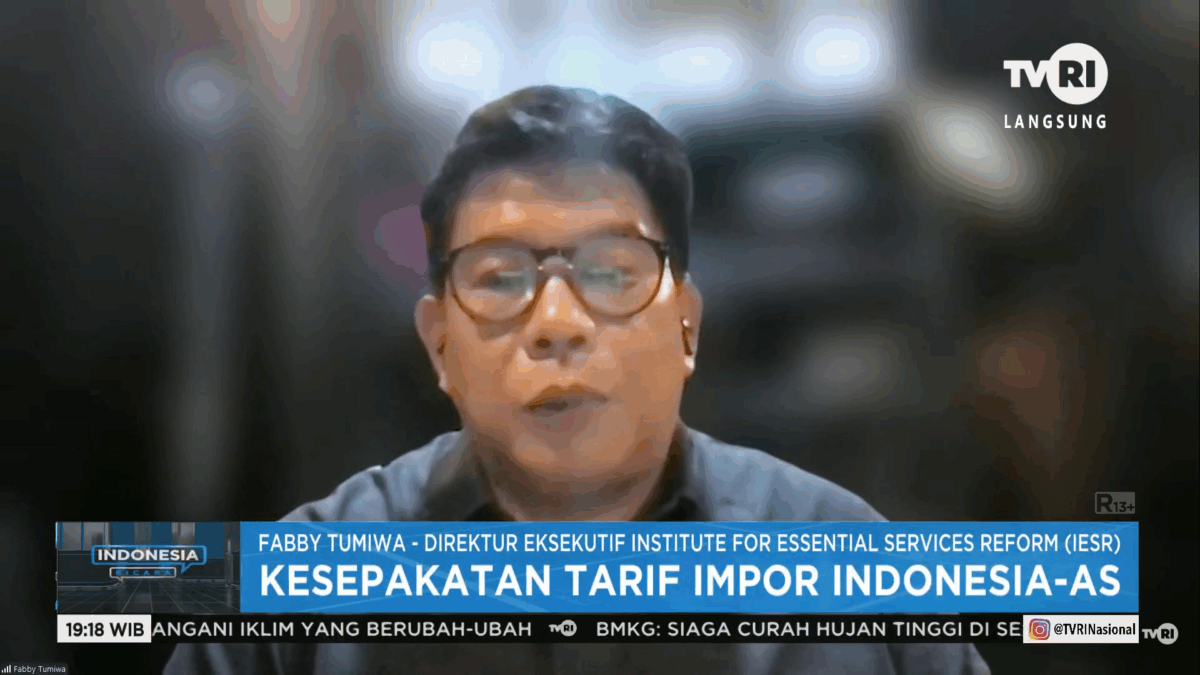
Impact of the Indonesia-US Import Tariff Agreement
Jakarta, July 17, 2025 – Indonesia received a 19% reciprocal tariff from the United States. This tariff was achieved after negotiations. The United States... Read more.
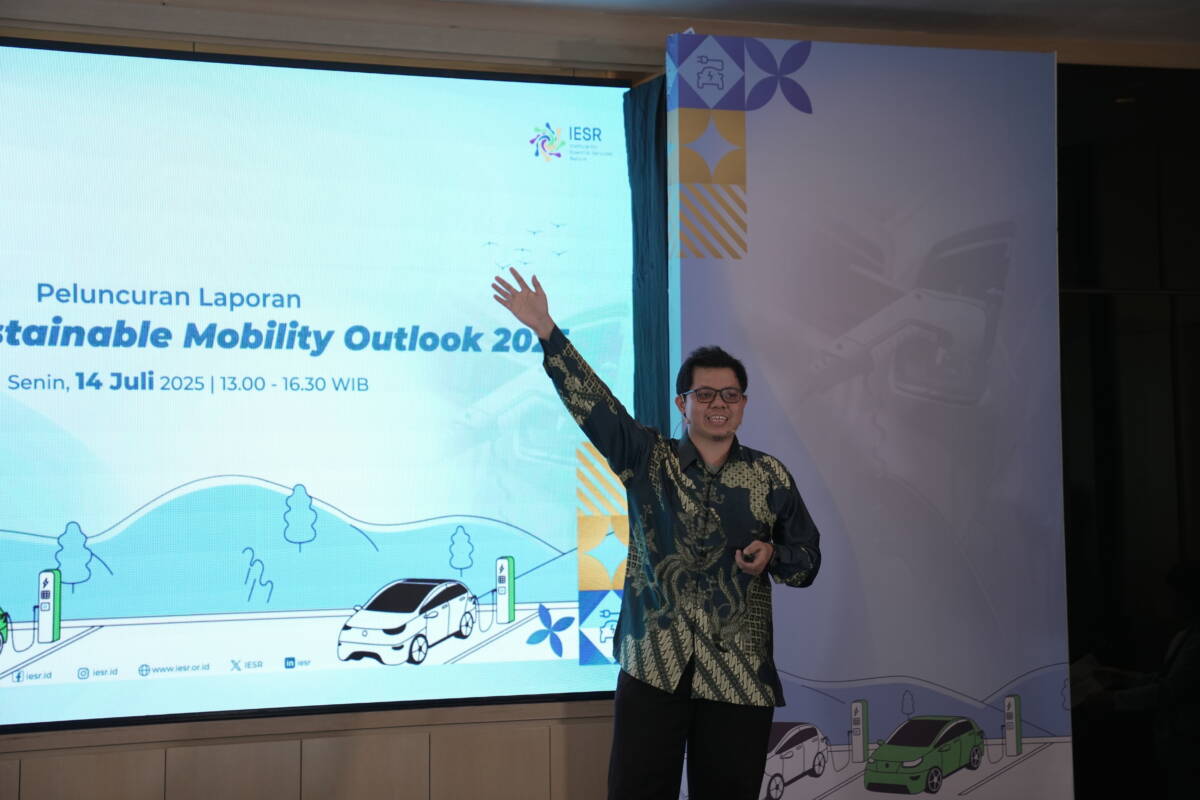
Sustainable Mobility: An Absolute Necessity for Decarbonizing the Transportation Sector
Jakarta, July 14, 2025 – Human mobility is a consequence of a constantly evolving and growing economy. To meet the needs of each individual, various alter... Read more.
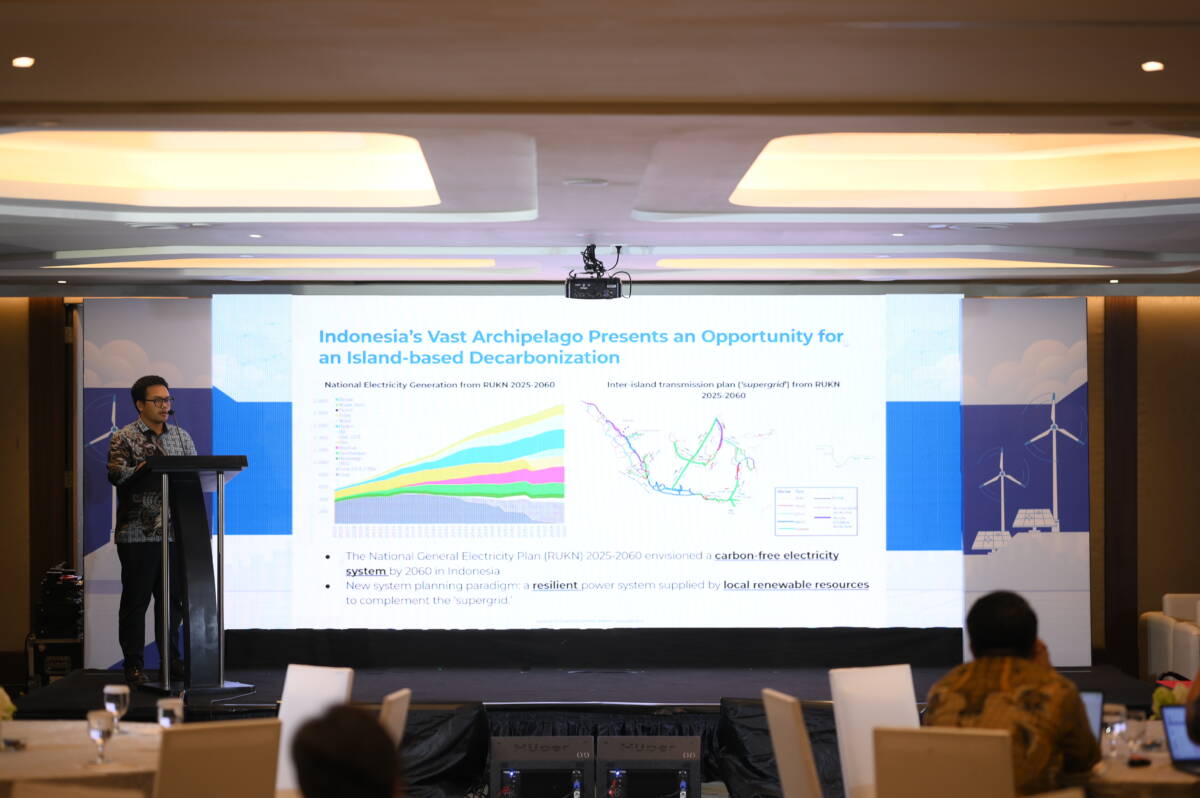
Energy Independence from Indonesia’s Islands
Jakarta, June 30, 2025 – PLN’s 2025-2034 Electricity Supply Business Plan (RUPTL) has set a target of adding 42.6 GW of renewable energy capacity an... Read more.

Comprehensively Monitoring the Energy Transition
Yogyakarta, June 4, 2025 – The energy transition to renewable sources is key to reducing Indonesia’s dependence on coal while promoting a sustainable ec... Read more.
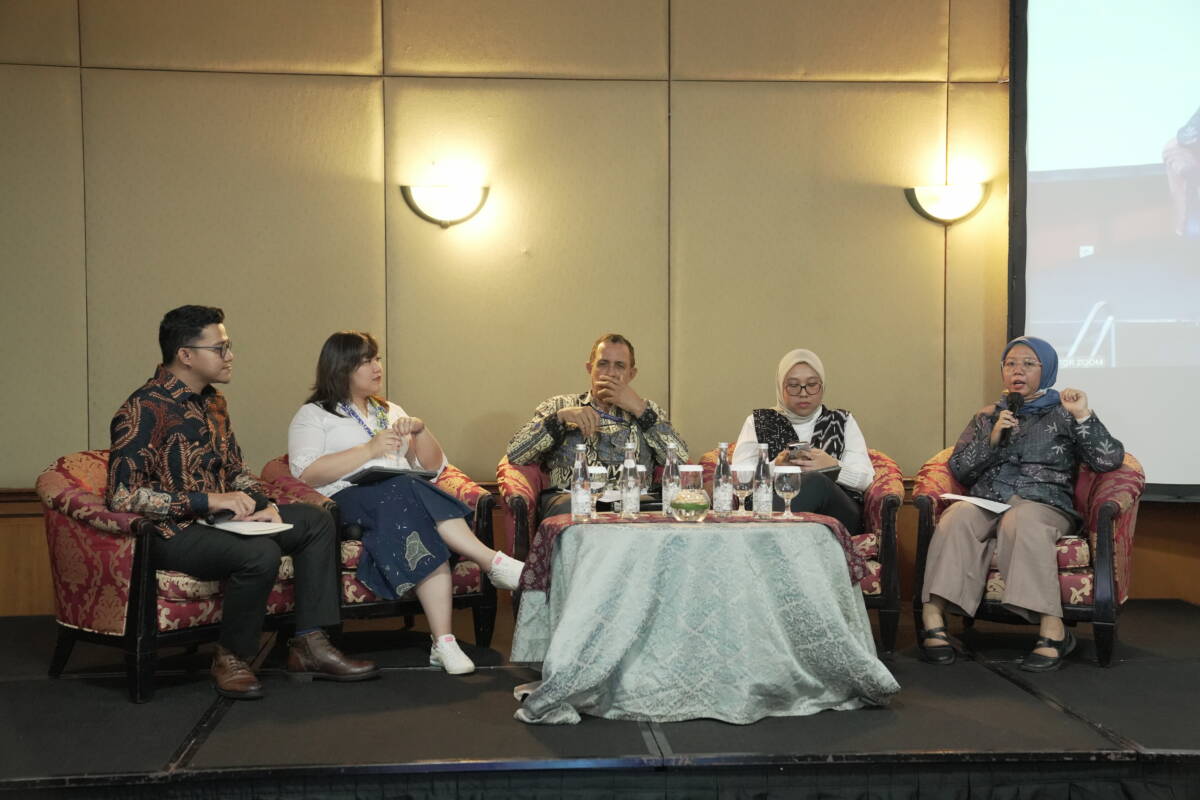
Green SMEs as the Backbone of Economic Transformation
Jakarta, June 12, 2025 – Small and Medium Enterprises (SMEs) contribute to more than 60 percent of Indonesia’s GDP and 97 percent of employment in I... Read more.
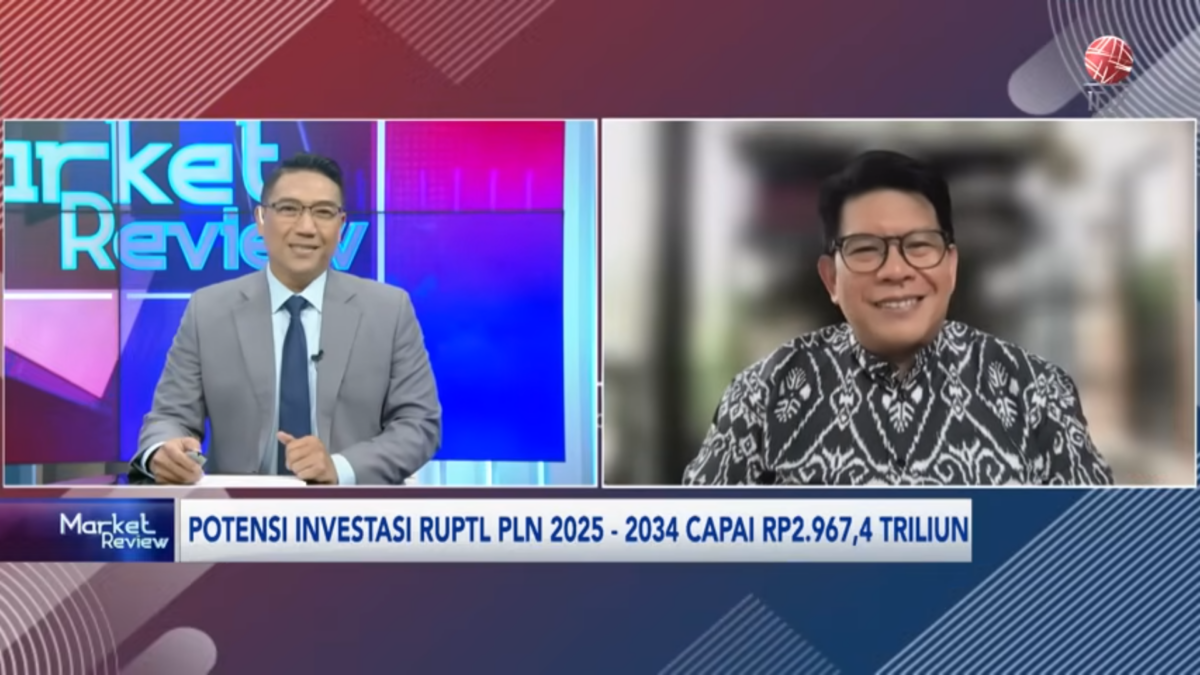
RUPTL Potential to Ignite Indonesian Economy
Jakarta, June 9, 2025 – The Indonesian government recently released the Electricity Supply Business Plan (RUPTL) which will be the guideline for the devel... Read more.
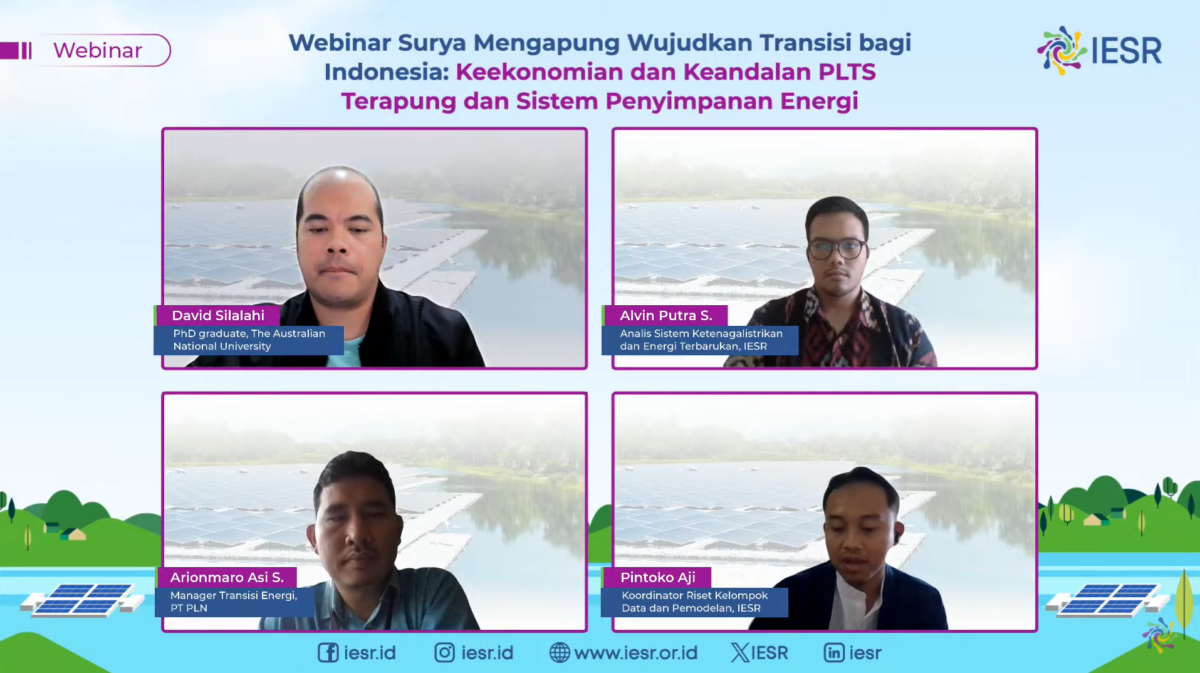
The Big Role of Floating Solar Power Plants in Realizing RUPTL 2025-2034
Jakarta, May 28, 2025 – Indonesia has a target of reducing energy sector emissions in the Enhanced Nationally Determined Contribution (E-NDC) of 358 milli... Read more.

Driving ASEAN Towards Green Transition
Jakarta, May 20, 2025 – Southeast Asia has become a region with an average economic growth of above 5 percent for five consecutive years. This growth outp... Read more.

Indonesian Industry between Trade War and Climate War
Jakarta, May 9, 2025 – Currently, the world is in various turmoils, including the trade war launched by the President of the United States (US), Donald Tr... Read more.
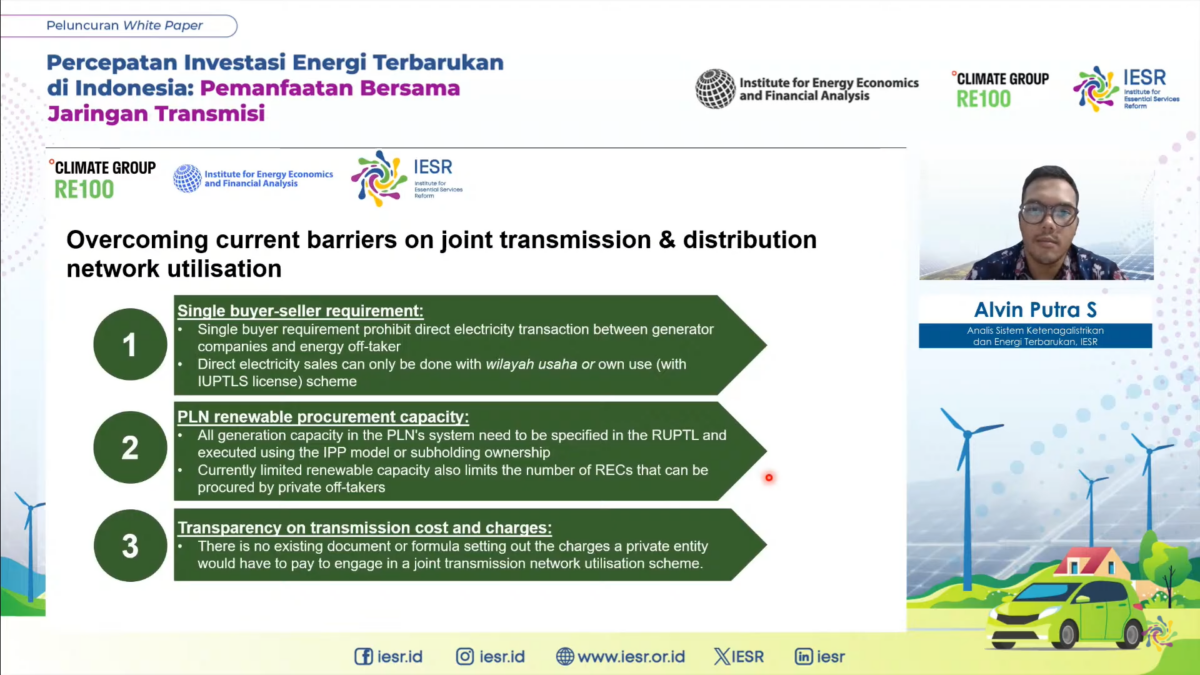
Shared Utilization of Transmission Networks to Boost the Economy
Jakarta, April 29, 2025 – Indonesia has renewable energy potential reaching more than 3,600 GW, but only around 0.3% of this renewable energy potential ha... Read more.
